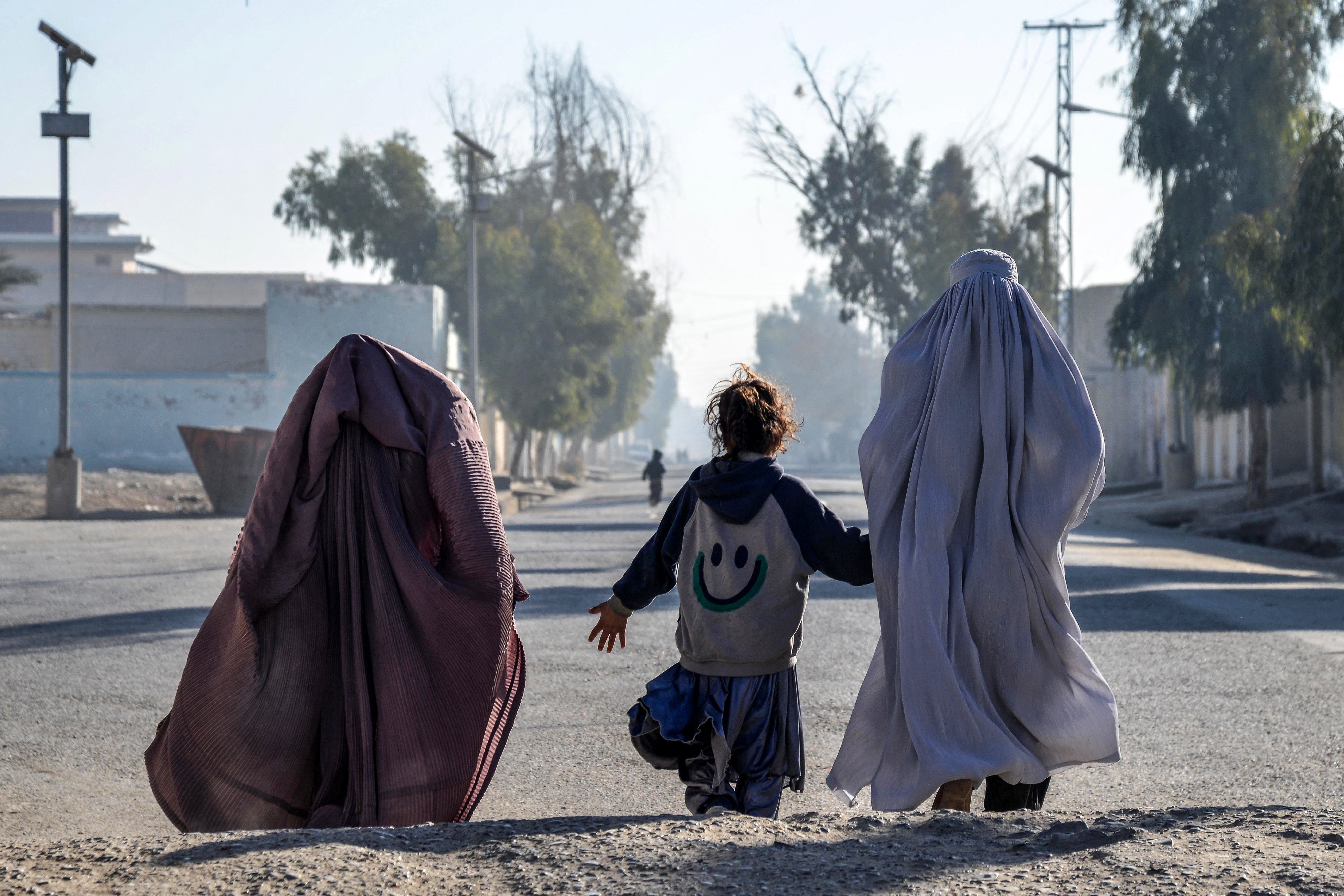The easy answer to those who ask why we need International Women’s Day
Across the world – in Afghanistan, Iran, Pakistan – women are being denied the most basic rights, writes Channel 4 News presenter Cathy Newman


Last summer, the Taliban introduced a new set of “vice and virtue” laws, one of which banned women not only from showing their faces, but also from speaking outside their homes.
If anyone ever questions the need for an International Women’s Day, the answer is right there in Afghanistan.
Don’t get me wrong: there were a few important milestones reached and glass ceilings shattered in 2024. Women now occupy nearly 45 per cent of board positions in the FTSE 100 for example, and Kemi Badenoch became the first black woman to lead a major UK political party. But look across the world – in Afghanistan, Iran, Pakistan (I could go on) – and women are being denied the most basic rights.
So as this International Women’s Day approaches, I wanted to pay tribute to some of the women who have used their voices to demand a better world.

Gisèle Pelicot refused to be silenced by “shame” after being drugged and raped by her husband Dominique and dozens of other men he’d recruited over a period of a decade. Her decision to waive her anonymity and her call for shame to “change sides” resonated across the world, empowering countless other survivors of sexual abuse.
I witnessed the same sort of bravery when I spoke to the victims of the Reverend David Fletcher. He was the man who instigated the Church of England’s decades-long cover-up of John Smyth’s barbaric abuse. No one knew that he too was accused of abuse, until three women came forward to tell their stories to me earlier this year.
Jeni, Caroline and Ali had stayed silent for nearly half a century but, with the Church facing a day of reckoning over how it’s handled abuse allegations, they plucked up the courage to speak out.
I saw fearlessness too in the Bishop of Newcastle Helen-Ann Hartley’s refusal to toe the line and protect the establishment, instead breaking ranks with her fellow bishops to challenge the two men at the top of the Church – Archbishops Justin Welby and Stephen Cottrell – who have both been accused of failing to to do enough to stop abuse over many years.
Welby became the first Archbishop of Canterbury in history to be forced to resign. But since calling for his resignation in the autumn, Bishop Helen-Ann has been ostracised by other senior Church figures.
That same determination to use a public platform to call for change was what motivated Love Island star Cally Jane Beech to talk about becoming a victim of an AI deepfake; a photograph of her was taken without her permission, then “nudified” and shared on the internet. I met her in the aftermath of Channel 4 News’s own investigation, during which my colleagues discovered I’d been deepfaked, too.
Cally Jane has campaigned brilliantly to ensure the government acts to make the creation of sexually explicit deepfakes – not just the sharing of such images – a criminal offence.
It’s the likes of Gisèle, Jeni, Caroline and Ali, Bishop Helen-Ann and Cally Jane who speak for us all in trying to make the world a more hospitable place for women.
Cathy Newman is a presenter and the investigations editor of Channel 4 News and also presents Times Radio
Join our commenting forum
Join thought-provoking conversations, follow other Independent readers and see their replies
Comments